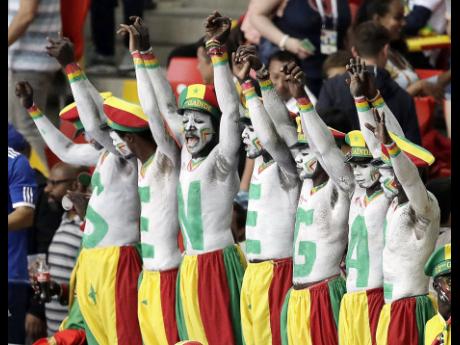Dalton Myers | World Cup vs the Summer Olympics
The FIFA men's football World Cup is in high gear. The debates continue about the greatest footballer, the best team, who will win, and who won't make it through the first round. This is because the World Cup is considered the 'Greatest Show on Earth'.
There's also the constant debate as to which is bigger - the World Cup or the Summer Olympics. What is clear, though, is that both are among the largest supported mega global sporting events. Both the World Cup and Olympics are quadrangular events and rake in significant revenue for their governing bodies. Both have also been dogged with controversy, the past few years.
Interestingly, for most Olympic sports, the main goal at a national level is to qualify for and participate in the Olympics, and in some cases, to win a gold medal. So while governing bodies may have their own World tournaments, the pinnacle of their athletes' national career is participating in and/or medalling at the Olympics. However, football is different. It's the reverse. The pinnacle is the World Cup.
That is because FIFA has protected its brand and carefully orchestrated a model that ensures that the best players in the world are available for their showpiece and not the Olympic football competition: Players of any age can play in the World Cup, but the Olympics is an Under-23 competition, with only three players over that age allowed.
The World Cup squad is 23 while the Olympic football squad is 18. More stars can be available for the World Cup when held.
The qualification is very rigid for the FIFA World Cup, and 32 teams (to be increased for 2026) qualify for the finals ,while only 16 teams make the Olympics. Global calendar dates are designated for FIFA-run competitions, World Cup qualifiers, and international friendlies. During these qualifiers, significant resources go into building rivalries and marketing with the regional associations such as UEFA.
In essence, FIFA has decided that it is not giving the International Olympic Committee (IOC) its best and most lucrative assets - its players - and has consistently protected that market so successfully that it is even considered in some quarters to be bigger than the Olympics.
Make no mistake, the World Cup ensures profit even though it is a not-for-profit organisation. Success of the competition is based on revenue: profit garnered from TV rights, sponsorship, ticket sales, of course, merchandising, and other rights fees. For the 2014 World Cup, FIFA raked in US$4.8 billion with a profit of US$2.6 billion. Sponsorship accounted for US$1.6 billion, TV rights brought in US$2.4 billion, and tickets sales , US$527 million. Additionally, FIFA minimises expenses by passing on most of those to the host nation. The host also provides tax exemptions and tax free zones for companies associated with the World Cup.
The build-up to the showpiece event, the marketing strategies, and post-event activities are carefully orchestrated. Sponsors pay billions to be associated with the FIFA World Cup brand and also spend millions as part of sponsorship activation and preventing ambush marketing.
Another reason for the success of the World Cup is the compensation to teams. The 2018 staging is expected to amass approximately US$6 billion in revenue. The prize money this year will total approximately US$791 million, with the governing body distributing $400 million directly to the teams based on finishing position and performance, while the rest will be allotted for payments to clubs, prize money, and player insurance fees.
Each team will decide the breakdown of player compensation. For example, if Germany wins, they will pay bonuses of approximately US$400,000 per player; while Brazil will pay US$930,000/player and Spain, US$950,000/player. The eventual winners will pocket US$38 million from FIFA, while the first and second runners-up take home US$29 million and US$24 million, respectively.
The FIFA World Cup Finals features 32 nations competing over a month but the reach is significant. We can debate the negative and positive impact on the citizens of host countries and whether hosting the event is beneficial in the long term, but what is certainly clear is that the FIFA World Cup is one of, if not, the greatest show on Earth.
- Dalton Myers is a sports consultant and administrator. Email feedback to daltonsmyers@gmail.com

